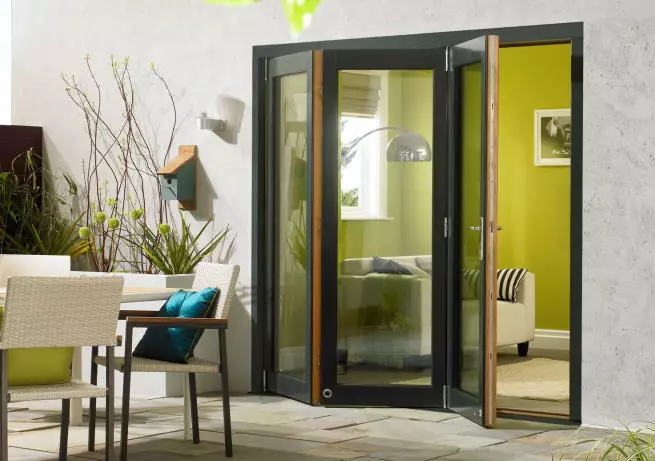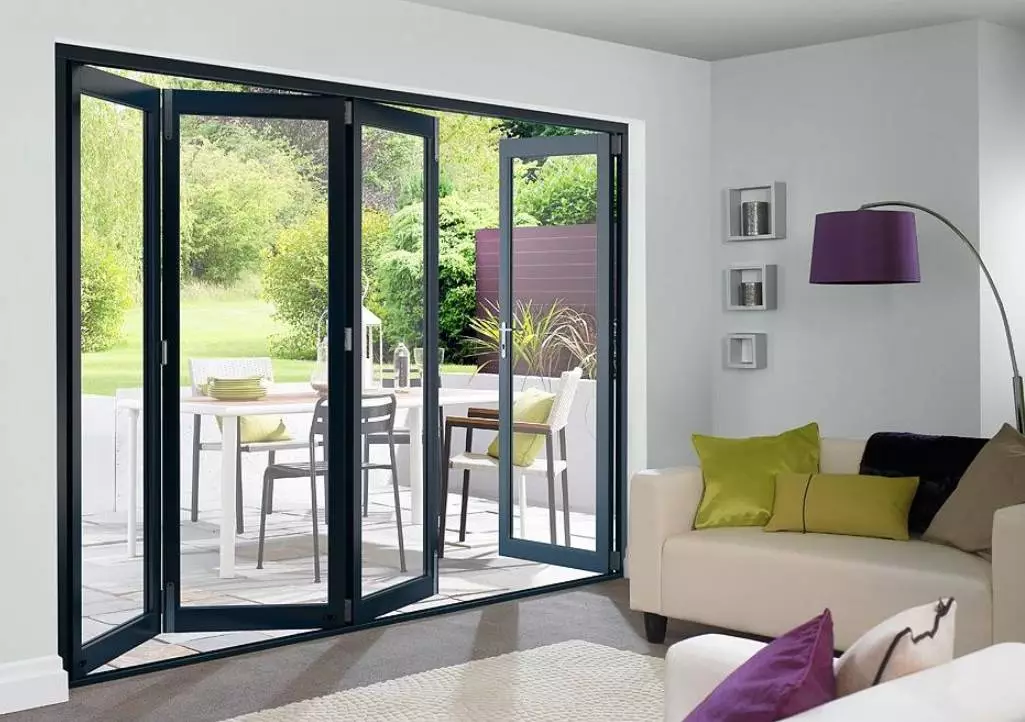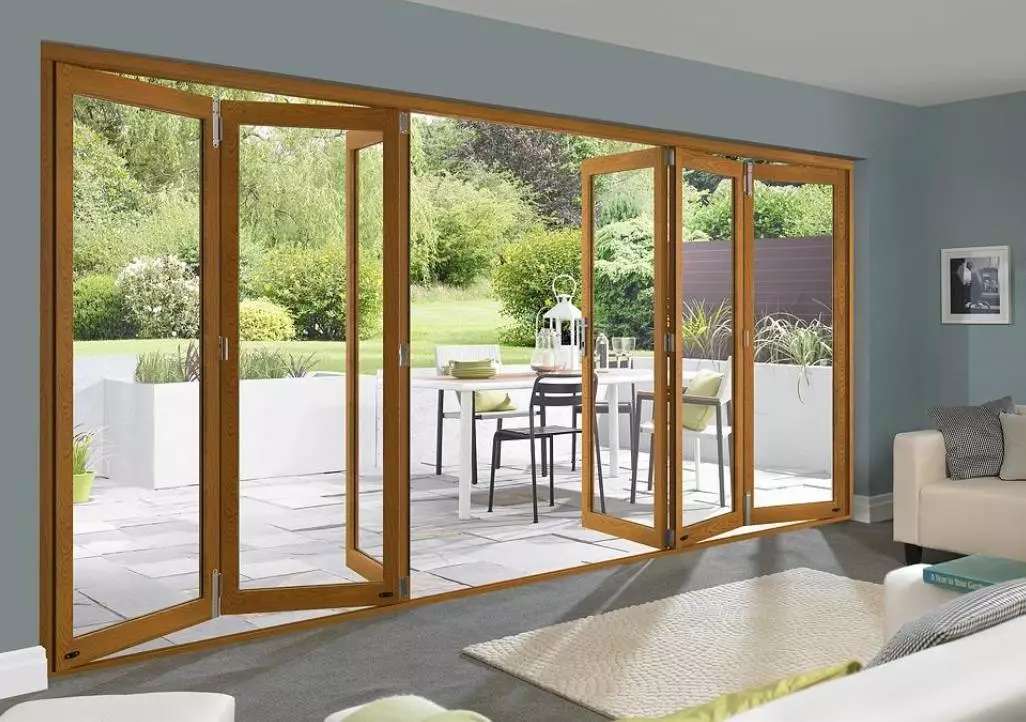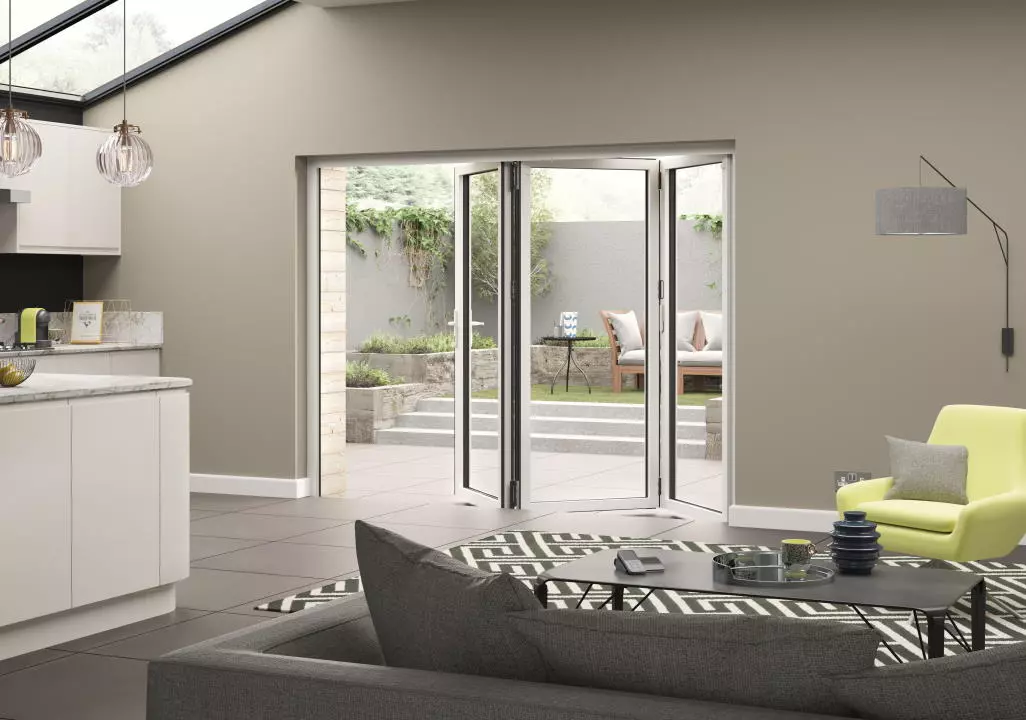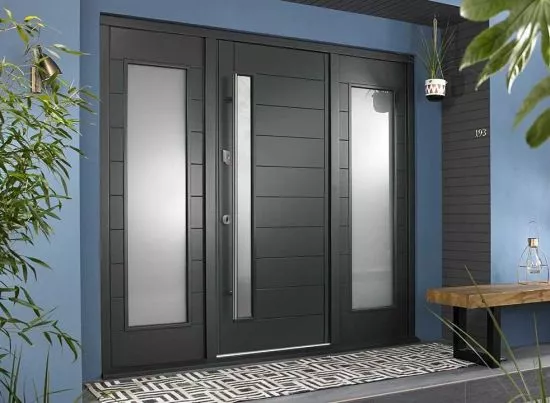External bifold doors: Aluminium vs uPVC - What are the key differences?
External bifold doors and windows not only look appealing, but they also enhance the value of your property. However, with dozens of materials and optional extras available, selecting the right bifold can be a daunting affair.
Here, we compare two common materials for bifold patio doors: aluminium and unplasticised Polyvinyl Chloride (uPVC). Find out which option may be best for your home.
In this guide:
Read how aluminium bifold doors and uPVC bifold doors differ in terms of initial cost, long-term value and cost of maintenance.
Find out how both types of bifold doors compare in terms of tolerance to heat, colour damage and general maintenance.
Read how uPVC and aluminium compare when it comes to their impact on the environment.
Read which option may be ideal for you in terms of style and finishing.
Find out which type of bifold door provides the slimmest sightlines and the best view.
Our overall verdictRead our overall verdict on how to choose the best option for you.
Frequently asked questionsWe answer common queries on choosing bifold doors.
External bifold door cost comparison
Initial cost vs maintenance costs
Price is the Number 1 factor that most homeowners consider when deciding the external bifold material to go for. But pricing encompasses several mini-factors: initial cost, long-term value and cost of maintenance.
With regards to initial cost, uPVC bifolds are significantly cheaper than their aluminium counterparts. Although external aluminium bifold doors cost more upfront, they’re long-lasting. Firstly, the guarantee on aluminium is longer – roughly 50% longer. This means that should anything go wrong with your doors in years 10 through to 15, you have a manufacturer’s guarantee to fall back on. Read more about our guarantee offerings here.
Aluminium bifold doors and windows can also last for up to 45 years. By comparison, those made of uPVC have an average lifespan of 20-30 years, after which you’ll have to replace with new ones. Find out more about the benefits of aluminium bifold doors here.
Expert Quote:
“Aluminium as a material will comfortably outlast uPVC, which has a lifespan of only 20 to 30 years.”
- Rick Collins, Director, Vufold.
House valuations
There is no doubt that higher quality fixtures will only work in your favour at point of sale. From a buyer’s perspective, should a house be fitted with uPVC doors, they may want to remove them, creating unwanted costs. This is highly unlikely with aluminium frames, due to their durability and high-quality. Find out more about how bifold doors can help you to utilise natural light here.
Read our guide to aluminium vs composite bifold doors here.
Colour uPVC cost extra
According to retailers of uPVC bifolds, adding a colour or textured finish to your frames will cost an extra 15-20%. This should be factored into the purchase cost given that the aluminium equivalent already has a colour finish. If you are happy with white of course, this is not something to be concerned with. Find out more about bifold door colours here.
Maintenance costs
When it comes to maintenance costs, there is little between the two materials. The most important factor to consider is that the standard white uPVC doors will need regular cleaning, otherwise dirt and grime can become engrained in the plastic. This may mean specialist cleaning products are required.
Find out more about bifold door maintenance here.
Usage and weathering
This is one area where external aluminium bifold doors really outshine their uPVC counterparts. When exposed to direct UV rays for an extended period, aluminium shows better resistance to expansion and contraction. As a material, aluminium is incredibly resistant to heat and light meaning it is less prone to thermal expansion. Read more about aluminium bifold durability here.
uPVC, on its part, is also resistant to contraction and expansion to a point. The generally accepted view is that you can expect roughly 2.5 times more expansion with uPVC.
In real terms, this will make uPVC doors harder to close and open during hot weather. You can either wait for the doors to cool or spray them with water. If you are in a rush, then expect to apply a little extra force to get them to shut immediately.
External bifolds product guarantee
The standard aluminium bifolds come with a 15-year guarantee, most uPVC doors come with a 10-year guarantee. This therefore is a further long-term benefit of aluminium – essentially you will enjoy a 50% longer product warranty. Find out more about our guarantees here.
Are you looking for a modern black bifold door with excellent thermal efficiency?
Our pick:
Shop our steel look bifold doors range
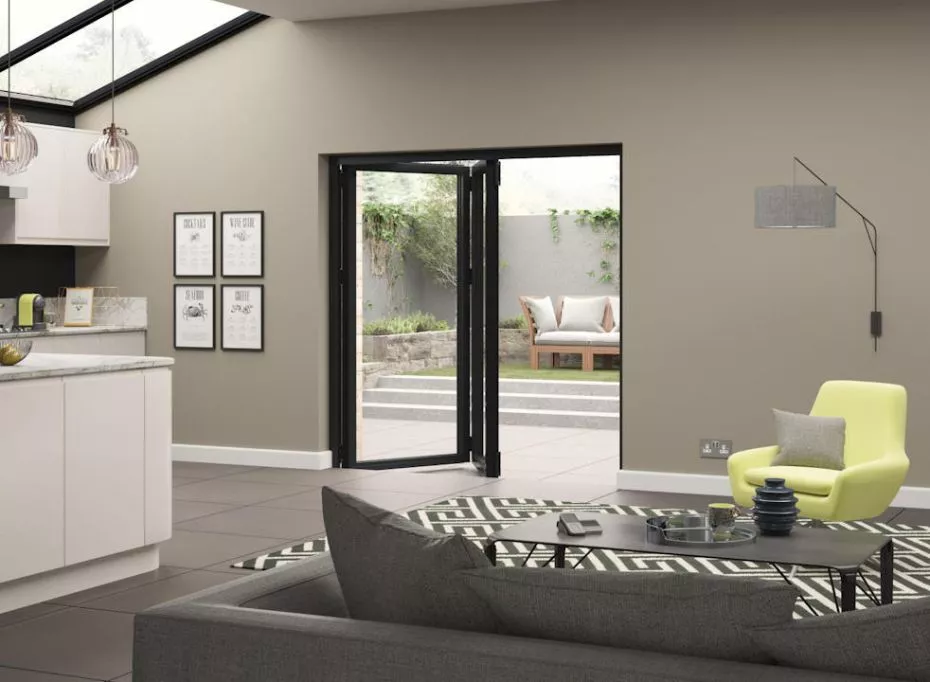
From £2489
- Thermally broken aluminium - Superior energy efficiency.
- Easy Install - Doors come ready glazed, with drill bits and fixings.
- Glazing – Double and triple
- Cill options - standard or projecting.
Colour fades and damage
An area that causes confusion is the amount of fading (photodegradation) homeowners can expect with their doors. The reality here is that all the materials - aluminium, hardwood & uPVC will experience a level of colour breakdown when exposed to sunlight over a prolonged period.
If your doors are, for example, south or southwest facing, they will get more exposure to UV light – so keep this in mind, especially if you are thinking of darker frames. In essence, colours begin to reflect less natural light as they break down, leaving them looking ‘dull’. If your property is expecting plenty of glorious sunshine, then lighter colours may be the way to go to limit the impact of this natural occurrence. Find out more about how to maintain your bifold doors here.
General maintenance
There isn’t much between the materials in terms of general maintenance. What you can expect; however, is standard white uPVC doors will inevitably show more dirt than an Aluminium equivalent as the picture earlier in this post demonstrates.
In general, warm water and a soft brush will eliminate most dirt and grime on aluminium frames.
Read our full guide to bifold door installation and maintenance here.
Sustainability
The typical recycling rate of an aluminium window frame is 94%, making aluminium a clear winner when it comes to recyclability. Although the plastics industry has improved in terms of environmental considerations, it has much work to do to enjoy the same levels of recycling enjoyed by aluminium. As a process, uPVC production is energy intensive and ultimately the world is trying to reduce plastic production which continues to grow at around 4% across Europe.
Are you choosing a new front door for your home? Read about sustainable front door trends.
Thermal efficiency
Bifold doors are some of the most eco-friendly external door solutions on the market, when utilising double or triple glazing. Both uPVC and aluminium offer excellent levels of insulation. Aluminium frames provide incredibly strong support for triple glazing when compared to other materials. The combination of excellent thermal efficiency and durability suggests aluminium is the most practical choice for a bifold door.
Find out more about choosing a bifold door with excellent thermal efficiency here.
Finish & style
If your primary concern when choosing an external bifold is style, aluminium doors often a huge range of design options and provide an instant luxurious feel. uPVC does not often provide the same ‘wow factor’ you get from aluminium bifold doors.
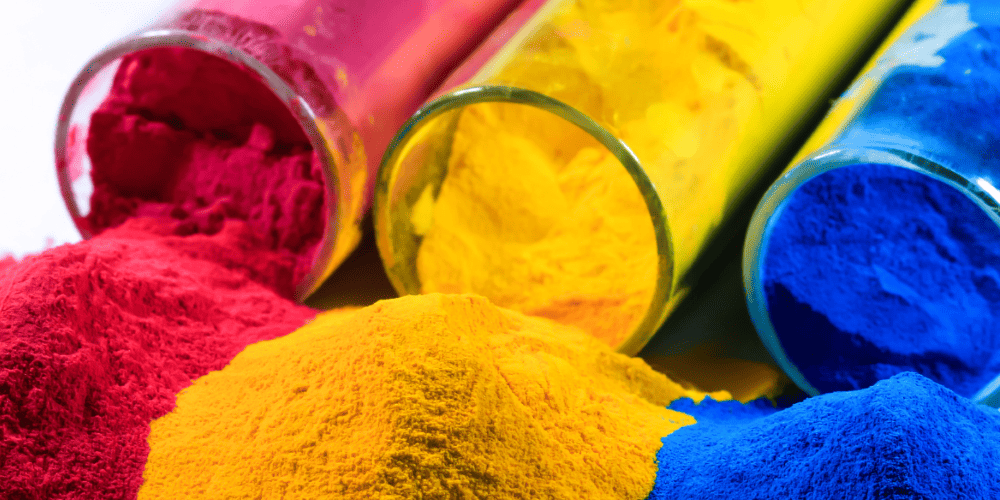
Vufold aluminium bifolding doors are available in a range of standard colours, all powder coated to provide an incredible, hard-wearing finish that should last (subject to location) around 20-25 years:
-
Hipca White (RAL 9910)
-
Gloss White (Supreme Range)
-
Anthracite Grey (RAL 7016)
-
Jet Black (RAL 9005)
-
Dual Colour Anthracite Grey/White (RAL 7016/9910).
Are you choosing a new bifold door? View our bifold door design options here.
Bespoke colours available on request
The powder coated finish of aluminium can be made in just about any RAL colour. So, whether you want a colour that reflects the sleek contemporary vibe in your home or prefer an outlandish lime green or yellow chosen by the kids, you can have your bifold door finished in pretty much any colour.
uPVC doors can also boast a large range of RAL colours, with the advantage of a wood effect finish being an option. This is something that cannot be done with aluminium, so if you want that natural feel, then uPVC has an advantage here (or you can of course go for real hardwood).
Are you looking for a black patio door? Read our guide to choosing black bifold doors.
Sightlines and view
This is a major part of the ‘wow factor’ in bifold doors. In case you’re not familiar with the term, a ‘sightline’ is the non-glass section of bifold doors - where the two panels of the bifold doors meet; also known as the door ‘stiles’. When choosing a new bifold door, the sightline is therefore an important consideration because it determines how much view you’ll get. Generally speaking, aluminium bifolds are known for having smaller sightlines than uPVC equivalents. Aluminium is stronger than uPVC meaning manufacturers can offer more glass without compromising product quality, stability and safety.
Ultra slim sightlines are now also becoming popular for aluminium frames but generally these are more expensive. Typically, you can expect the following variances in sightlines from suppliers of aluminium bifold doors:
Overall verdict – Aluminium vs uPVC bifold doors
The following table gives an independent view on the main considerations homeowners should consider when opting for either aluminium of uPVC external bifold doors:
|
Consideration |
Aluminium |
uPVC |
|
Initial Cost |
||
|
Life Time Cost |
||
|
Thermal Expansion |
||
|
Guarantees / Life Span |
||
|
Finish & Style |
||
|
Threshold |
||
|
Security & Safety |
||
|
U-Values (Thermal Efficiency) |
||
|
Maintenance |
||
|
Enviroment & Health |
||
|
Sight Lines / Frames |
||
|
RAL Colours |
-
Green = Above average for industry
-
Orange = Average for industry
-
Red = Below average for industry.
In summary, uPVC external bifolds are an excellent option if you’re looking for a budget-friendly, low-maintenance and energy-efficient option. On the other hand, aluminium bifolds are great if you’re looking to make a long-term investment, want to support plastic reduction in society and boost the curb appeal and value of your property.
Frequently asked questions
Are aluminium or uPVC bifold doors better?
Aluminium and uPVC bifold doors both have their merits, but aluminium often comes out on top for premium projects. Aluminium doors are known for their sleek frames, strength, and long-lasting quality, which makes them ideal for modern designs and large glass panels. On the other hand, uPVC bifold doors are more affordable and provide decent thermal efficiency, though they may not be as durable or visually refined.
If you’re after a high-end finish, excellent durability, and the ability to support larger panes of glass, aluminium is likely the better choice. However, if budget is your primary concern, uPVC could meet your needs without breaking the bank.
Are aluminium doors cheaper than uPVC?
No, aluminium doors are generally more expensive than uPVC. This higher price reflects their superior durability, strength, and contemporary appearance. Aluminium is a premium material that’s known for its durability and ability to last for decades, whereas uPVC is more affordable but less robust over time.
While the initial cost of aluminium doors is higher, many homeowners and businesses find the investment worthwhile due to their longer lifespan and enhanced aesthetic appeal. Read our guide to bifold door costs here.
How good are aluminium bifold doors?
Aluminium bifold doors are widely regarded as an excellent choice for modern homes and commercial properties. They are extremely durable, offering robust performance even in challenging weather conditions, and their slimline frames maximise the amount of glass, creating brighter, more open spaces.
These doors also boast excellent security features and are available in a range of finishes to suit any style. Plus, aluminium is resistant to warping, rusting, or cracking, ensuring years of reliable use with minimal maintenance. Read more about the benefits of aluminium bifold doors here.
How long do aluminium bifold doors last?
Aluminium bifold doors can last upwards of 40 years, especially with proper care and maintenance. Their durability comes from the inherent strength of aluminium as a material and the quality of modern powder-coated finishes, which protect against weathering and corrosion.
Routine cleaning and occasional lubrication of hinges and tracks are usually all that’s needed to keep them in top condition, making them a low-maintenance yet long-lasting investment. Read about our product guarantees here.
Are aluminium bifold doors better than uPVC?
For most homeowners, aluminium bifold doors are considered better than uPVC due to their superior durability, slimmer frames, and premium finish. Aluminium doors are also capable of supporting larger glass panels, which means better views and more natural light.
While uPVC doors are more budget-friendly and offer good thermal performance, they lack the strength and modern aesthetic appeal of aluminium. Additionally, uPVC can discolour and become less durable over time, while aluminium maintains its quality for decades.
Are aluminium bifold doors more expensive than uPVC?
Yes, aluminium bifold doors are more expensive than uPVC. Their higher cost is attributed to the premium materials, long lifespan, and stylish design they offer. Aluminium doors provide excellent value for money when considering their durability and aesthetic appeal, as well as their ability to support larger panes of glass.
While uPVC bifold doors are a more budget-conscious option, they may require more frequent replacements, potentially offsetting the initial savings over time.
RELATED CONTENT

About John Collins
John has built Vufold into a unique online door and window company and has spent 20 years bringing innovative products and designs to fruition, recognising niches in the market and placing them in the likes of Wickes and Travis Perkins, he started Vufold in order to sell them directly. John founded Vufold and has amassed a wealth of experience in product design and development, and in particular timber-based products
Read more about John CollinsWhat material bifold door should you choose?
What is your priority when looking for a new bifold door?



